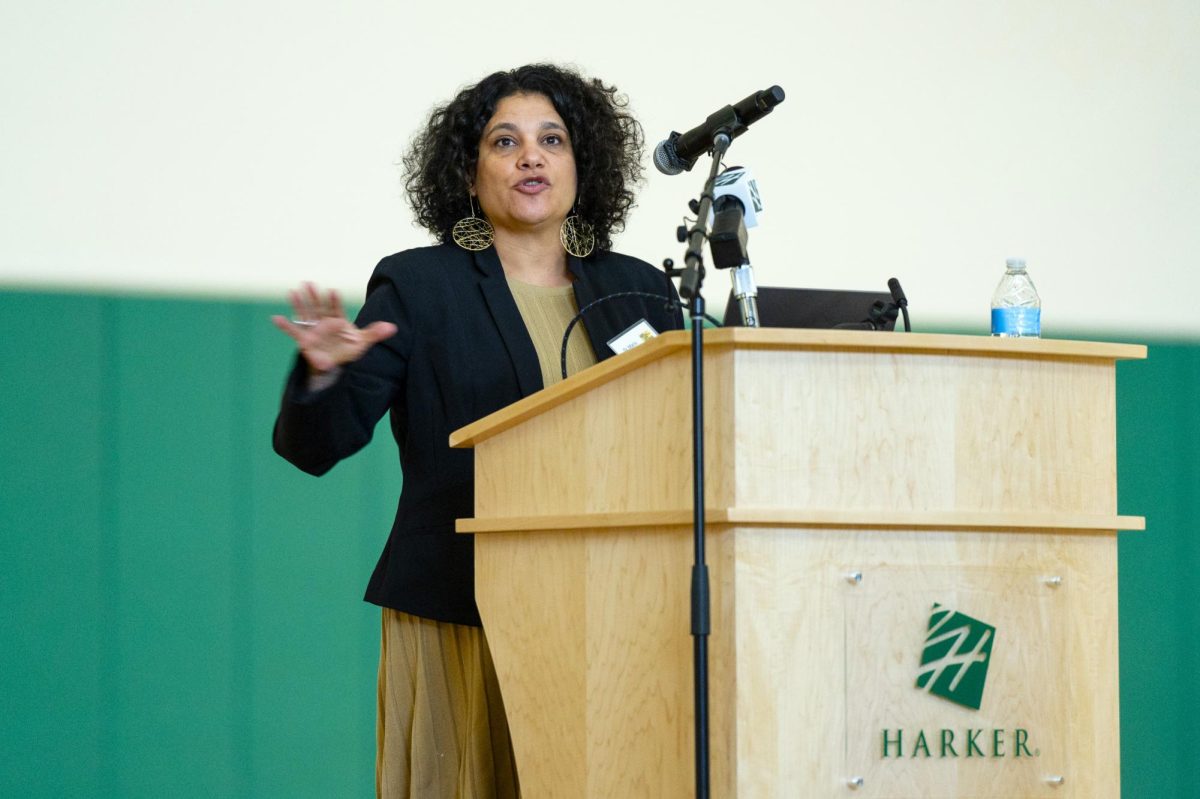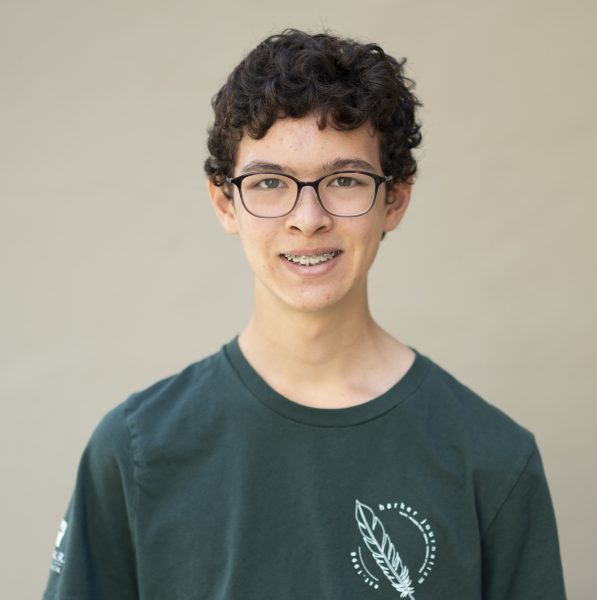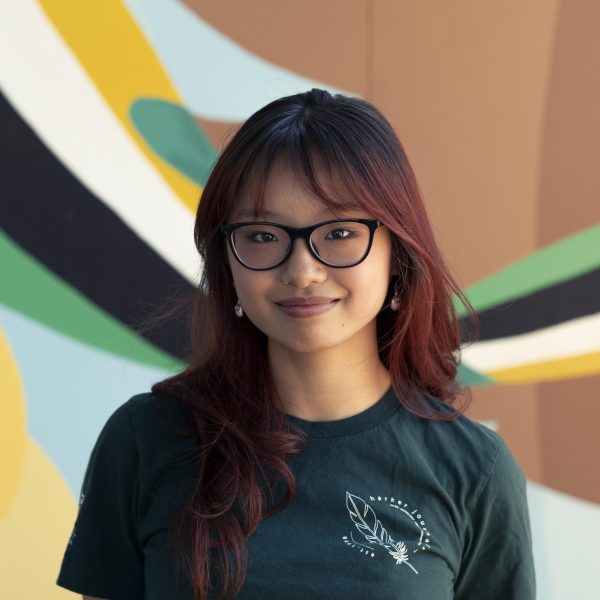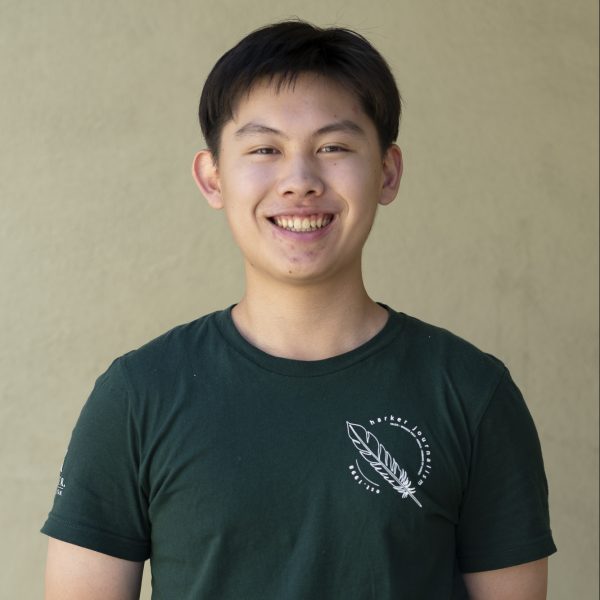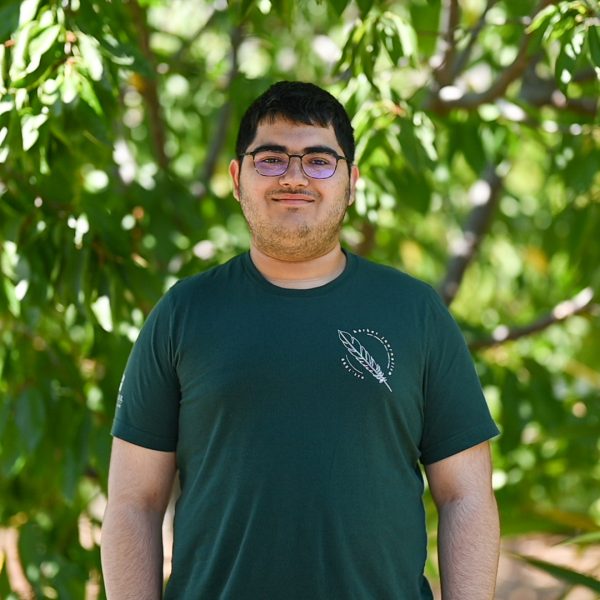275 students, faculty and staff from all Harker campuses attended Harker’s inaugural Social Justice Conference at the upper school from 7:30 a.m. to 3 p.m. on Nov. 10.
The conference featured a series of workshops on social justice, human rights and Diversity, Equity and Inclusion (DEI) topics. Students and faculty from all campuses, as well as attendees from schools across the Bay Area, heard from six workshop speakers as well as the morning and afternoon keynotes.
“My favorite thing that I saw today was a lot of laughter, a lot of smiles,” Director of DEI Brian Davis said. “Your own story, your own experiences [are] enough for you to have the power and influence to make change — not only here Harker, but beyond Harker as well.”
Vassar College professor and morning keynote speaker Maria Hantzopoulos asked everyone to take a moment to reflect on the core tenets of social justice in the Athletic Center. Hantzopoulos incorporated her personal experiences as a public school teacher and advocate for education in New York City to help define key terms like equity, equality and social justice. Throughout the keynote, Hantzopoulos encouraged discussion between attendees through question prompts that participants could write about or discuss.
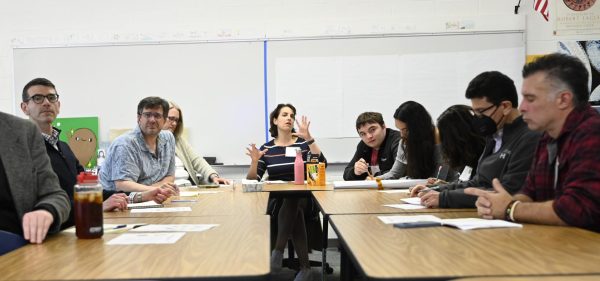
“I really wanted to set the tone for the day as the keynote because the workshops will be meatier to look deeply into things,” Hantzopoulos said. “I wanted to look at what social justice is and how it might manifest in our lives.”
Following the keynote, attendees moved on to the first workshop session. Subjects ranged from institutional and systemic takes on social justice, like in Darius White’s “Pushin’ P: Power, Privilege, Positionality” and Hantzopoulos’s “Rooting our Futures in Peace, Justice, and Human Rights,” to interpersonal relationships in Melissa Canlas’s “Revolutionary Love: Practices for social justice, collective care, wellness, and joy.” The workshops took place from 9:35 to 10:40 a.m. in the Nichols Auditorium, Dobbins Hall and Main classrooms.
In the second round of workshops, attendees continued learning and exploring through workshops, including the earlier series and others with a scientific angle, such as a “Genealogy Workshop” and “Towards an Understanding of the Earth’s Voice.” “Genealogy Workshop” co-host and Berkeley Gender and Women’s Studies Associate Professor Courtney Desiree Morris emphasized the importance of making present decisions to improve the future.
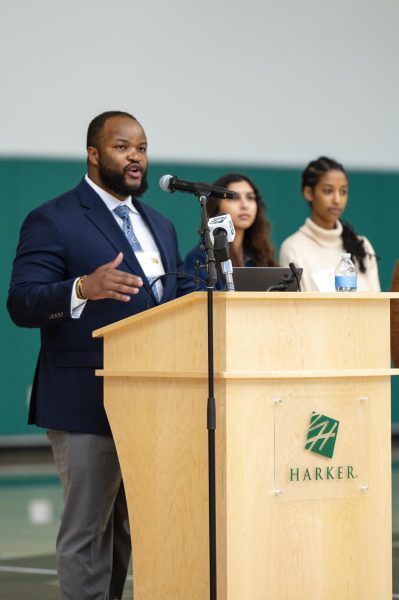
“Remember that you are a subject of history,” Morris said. “You are a product of history, and you’re also shaping history. If you can remember that, then I hope it will make people more conscientious about the choices that they’re making right now and that they really take seriously their ability to shape the kind of future world that they want to see.”
A third round of workshops preceded University of San Francisco International and Multicultural Education Professor Monisha Bajaj’s afternoon keynote. Bajaj, who attended Harker Academy from 1985 to 1987, closed the conference with her presentation on human rights. She highlighted the concepts of accompaniment, amplification and action, encouraging attendees to consider the action that they could take in the face of inequality and injustice.
“It gave me some new perspectives that I never thought of and basically opened up the world of social justice,” Social Justice Conference attendee Amy Tong (9) said. “My main takeaway is that if you want to invest in social justice, you don’t have to do anything big. You can start from something small and still make an impact.”


















![“[Building nerf blasters] became this outlet of creativity for me that hasn't been matched by anything else. The process [of] making a build complete to your desire is such a painstakingly difficult process, but I've had to learn from [the skills needed from] soldering to proper painting. There's so many different options for everything, if you think about it, it exists. The best part is [that] if it doesn't exist, you can build it yourself," Ishaan Parate said.](https://harkeraquila.com/wp-content/uploads/2022/08/DSC_8149-900x604.jpg)




![“When I came into high school, I was ready to be a follower. But DECA was a game changer for me. It helped me overcome my fear of public speaking, and it's played such a major role in who I've become today. To be able to successfully lead a chapter of 150 students, an officer team and be one of the upperclassmen I once really admired is something I'm [really] proud of,” Anvitha Tummala ('21) said.](https://harkeraquila.com/wp-content/uploads/2021/07/Screen-Shot-2021-07-25-at-9.50.05-AM-900x594.png)







![“I think getting up in the morning and having a sense of purpose [is exciting]. I think without a certain amount of drive, life is kind of obsolete and mundane, and I think having that every single day is what makes each day unique and kind of makes life exciting,” Neymika Jain (12) said.](https://harkeraquila.com/wp-content/uploads/2017/06/Screen-Shot-2017-06-03-at-4.54.16-PM.png)








![“My slogan is ‘slow feet, don’t eat, and I’m hungry.’ You need to run fast to get where you are–you aren't going to get those championships if you aren't fast,” Angel Cervantes (12) said. “I want to do well in school on my tests and in track and win championships for my team. I live by that, [and] I can do that anywhere: in the classroom or on the field.”](https://harkeraquila.com/wp-content/uploads/2018/06/DSC5146-900x601.jpg)
![“[Volleyball has] taught me how to fall correctly, and another thing it taught is that you don’t have to be the best at something to be good at it. If you just hit the ball in a smart way, then it still scores points and you’re good at it. You could be a background player and still make a much bigger impact on the team than you would think,” Anya Gert (’20) said.](https://harkeraquila.com/wp-content/uploads/2020/06/AnnaGert_JinTuan_HoHPhotoEdited-600x900.jpeg)

![“I'm not nearly there yet, but [my confidence has] definitely been getting better since I was pretty shy and timid coming into Harker my freshman year. I know that there's a lot of people that are really confident in what they do, and I really admire them. Everyone's so driven and that has really pushed me to kind of try to find my own place in high school and be more confident,” Alyssa Huang (’20) said.](https://harkeraquila.com/wp-content/uploads/2020/06/AlyssaHuang_EmilyChen_HoHPhoto-900x749.jpeg)



